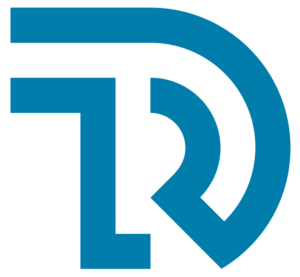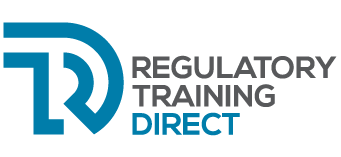current affairs
Issue 233, February 2023
To ask about about sponsoring an issue of this newsletter contact us on info@regulatorytrainingdirect.com
Training news
Product specifications. This course has been revised to also include the Supplier’s Raw Material Specification, and the Manufacturer’s Starting Material Specification, as well as the Sponsor’s Finished Product Specifications (FPS). This course would be of interest to formulators, QA personnel, labelling and regulatory affairs staff, in any company involved in supplying complementary medicines (supplements). It includes example specification templates and information on common deficiencies. Course 1.05. Read more about this course here.
Follow us on LinkedIn: we hope you like our newsletter. If you want to receive up-to-the-minute announcements on new courses, new content and vital regulatory updates follow us on LinkedIn.
REGULATORY NEWS
Complementary Medicines and Medical Devices:
Changes applying to evaluation of new substances for listed medicines. This is the process that is used when a company or person applies to have an ingredient added to the list of ingredients permitted in listed medicines and listed assessed medicines. This applies to both active and non-active ingredients, and to herbal as well as chemical ingredients. This is a complicated procedure that requires safety data and often includes an up-to-date toxicology report. The guidance document details what information is needed for the application to pass through the preliminary review and progress to the evaluation phase. The TGA site includes a list of new mandatory requirements and guidelines. Source: TGAand useful information here.
Psilocybin and MDMA may now be prescribed by authorised psychiatrists. The permitted use isMDMA for the treatment of post-traumatic stress disorder and psilocybin for treatment-resistant depression. Currently there is a lack of options for patients with specific treatment-resistant mental illnesses. For these purposes they will be listed as Schedule 8 – “controlled drugs” in the poisons schedule. Source: TGA.
Sports supplements order to be updated to include WADA’s 2023 World Anti-Doping Code International Prohibited List. The Therapeutic Order of 2020 declared certain sports supplements to be medicines – therefore they are NOT foods. WADA’s prohibited list includes some ingredients that are already included in the poisons schedule, and others that are for therapeutic use, ruling out their use in foods. Source: TGA
NOTE: we have a one hour course on sports supplements, explaining when they are classified as medicines, and when they can be foods, and the differing labelling and claims requirements for each category. Refer to our website.
FreeStyle LibreLink Android app used to recognise and manage high or low blood sugar levels. Users may experience extended periods of signal loss meaning they won’t be able to monitor blood sugar levels. The problem arises on smartphones with the ANDROID 13 OS. A software update is being sent out to fix the problem. Source: TGA
JSHealth Vitamins fined $13,320 for alleged unlawful supply of a complementary medicine Detox and Debloat. The label did not include the required warning statements advising that the ingredient extracted from fennel, Foeniculum vulgare is not recommended for children under 12 years and should not be taken by women who are pregnant or likely to become pregnant, or breastfeeding women. This infringement notice follows the recall of the product. Source: TGA.
Database of Adverse Event Notifications has just been updated.This database allows you to search reports of suspected side effects (also known as adverse events) for medicines, vaccines and biologicals (such as cell and tissue therapies). Source: TGA
TGA Fees and charges. Opportunity to comment on proposed fees for 2023 – 2024 closes 20th March. Source: TGA
NSW Health is urging parents to be aware of the dangers of vaping among young people. They state “Vapes contain dangerous ingredients which could cause irreversible damage to the health and development of young people. There is no such thing as a safe vape.” And “there are links between mental health concerns and vaping among young people.”
Product recalls
Curash Nappy Rash Cream. Batches being recalled following reports of adverse reactions – skin sensitivity, redness and/or rash. Source: TGA.
In the press:
Australia becomes the first country to recognise psychedelics as medicines. This article quotes various experts in the field. In particular, the TGA judgement cited a study on single-dose use of psilocybin in the New England Journal of Medicine, published in November, which the TGA said had further strengthened “the already promising body of evidence” for psilocybin’s efficacy in treatment-resistant depression. Source: SMH.
Prescribing MDMA and psilocybin: who will get the drugs and how will they help? More discussion on this topic. Source: The Guardian.
‘Never seen a rash so bad’: Parents claim recalled cream Curash Nappy Rash Cream allegedly ‘burns babies’. Source: SMH
‘Looming global health crisis’: urgent action needed to prevent spread of drug-resistant superbugs, CSIRO says. Article published in The Guardian.
Facebook ads opposing a ban on vaping in Australia failed to disclose tobacco company backing. The ads have been removed by Meta – they were sponsored by British American Tobacco Australia. Source: The Guardian.
NOTE: our 2 hour course “2.10 Advertising and Social Media in Australia and New Zealand” looks into these issues. Read about it here..
Foods:
Food Standards News February 2023 is available here. This issue includes:
Proposal P1010 – Review of Formulated Supplementary Sports Foods
FSANZ invites written submissions on the assessment of Standard 2.9.4 – Formulated Supplementary Sports Foods of the Code. Submissions close 6pm (Canberra time) 9 March 2023.
Proposal P1061- Code Maintenance Proposal 2023
The purpose of this proposal is to make minor amendments to the Code. Submissions close 6pm (Canberra time) 3 March 2023.
Application A1227 Alpha-arabinofuranosidase from GM Trichoderma reesei as a processing aid
FSANZ invites written submissions on the assessment a new source microorganism, being alpha-arabinofuranosidase from a genetically modified strain of Trichoderma reesei as a processing aid for use in brewing, fats and oils processing, grain processing and potable alcohol production. Submissions close 6pm (Canberra time) 22 March 2023.
Application A1228 Endo-1,4-beta-xylanase from GM Trichoderma reesei (gene donor: Talaromyces leycettanus) as a processing aid
FSANZ invites written submissions on the assessment a new source microorganism, being endo-1,4 beta-xylanase from a genetically modified strain of Trichoderma reesei as a processing aid for use in brewing, fats and oils processing, grain processing and potable alcohol production. Submissions close 6pm (Canberra time) 22 March 2023.
Application A1229 Carboxypeptidase from GM Aspergillus oryzae as a processing aid
FSANZ invites written submissions on the assessment of carboxypeptidase, sourced from GM Aspergillus oryzae, as a processing aid in the manufacture and/or processing of proteins, yeast and flavourings; the manufacture of bakery products; and brewing. Submissions close 6pm (Canberra time) 22 March 2023.
FSANZ has approved variations arising from the following applications and proposals:
Application A1219 – Alpha-amylase from GM Bacillus licheniformis as a processing aid
And applications:
Application A1263 – Rhodomonas salina biomass and extract as a novel food
To permit Rhodomonas salina biomass and extract as a novel food.
Application A1265 – 2′-FL DFL, LNT, 6′-SL sodium salt and 3′-SL sodium salt for use as nutritive substances in infant formula products
To permit the voluntary use of four human-identical milk oligosaccharide (HiMO) ingredients produced by microbial fermentation, alone or in combinations, as nutritive substances in infant formula products.
Application A1267 – Fructanase from GM Trichoderma reesei as a processing aid
To permit fructanase from genetically modified Trichoderma reesei to be used as a processing aid in bakery products.
Food Recalls
JS Health x Inside Out Unsweetened Almond Milk Collagen + Calcium + Prebiotics, 1 L.; JS Health x Inside Out Unsweetened Oat Milk Collagen + Calcium + Prebiotics, 1 L; and JS Health x Inside Out Barista Oat Milk Collagen + Calcium + Prebiotics, 1 L. Storage instructions missing on labels – product not labelled with directions to keep refrigerated. Failure to refrigerate may lead to microbial growth and biotoxin contamination. Source: FSANZ
Sammi Shaanxi Cold Noodle (Noodle + Seasoning 186g package, containing noodle 80g) – due to the presence of an undeclared allergen (peanut). Source: FSANZ
Farmland Alfalfa Sprouts – due to microbial (Salmonella) contamination Source: FSANZ
Fresh Frontier Co is conducting a recall of Chicken Bacon Pasta Salad – due to microbial (Listeria monocytogenes) contamination
Smithy’s Dry Lager – under declared alcohol level. Source: FSANZ
Calbee Harvest Snaps Vegemite – incorrect allergen information (gluten) in the nutrition information panel. Source: FSANZ
In the press:
JSHealth Inside Out almond milk recalled Inside Out is recalling its unsweetened almond milk which was found to contain a toxin that can cause a rare but serious paralysing illness after a man was admitted to a Sydney hospital suffering severe symptoms having consumed the milk. The recall is due to potential biotoxin contamination (Botulinum toxin). Botulism is a rare but serious illness that causes descending paralysis caused by nerve toxins made by Clostridium botulinum bacteria. Source: SMH
Fresh Frontier’s Chicken Bacon Pasta Salad with a Use By Date of February 23 is believed to have microbial contamination, specifically Listeria monocytogenes.Source: news.com.au
The Australian Securities and Investments Commission is suing Noumi (formerly Freedom Foods) – alleged misleading conduct Source: SMH
Cosmetics, Personal Care and TGA Listed Sunscreens:
New decision tool to help complete the categorisation process of your ingredient. Is your introduced chemical in the exempted, reported or assessed category? This helps you reach an outcome by combining the results of your introduction’s indicative risks to human health and the environment. Decision tool is here.
One chemical has been added to the Australian Inventory of Industrial Chemicals following issue of assessment certificate – CAS 1835697-72- , a fragrance ingredient that can be imported into Australia at up to 1 tonne per year, or imported at up to 100% concentration for reformulation of end use products at less than 1% concentrations for consumers and professional use. AICIS
Chemicals added to the Inventory 5 years after issue of assessment certificate. (chemical names not included here, refer to AICIS link here)
CAS 49553-76-6
CAS 1453857-96-9
CAS 1460302-78-6
CAS 1979945-25-9
CAS 1980007-59-7
CAS 646054-64-0
CAS 141347-05-9
Guide to categorising your chemical importation and manufacture (Categorisation Guide) following the removal of Benzene, hexachloro- (HCB), CAS no. 118-74-1 and Benzene, 1,2,3,4,5-pentachloro- (PeCB), CAS no. 608-93-5 from the AICIS Inventory on 8 February 2023. AICIS
Guidance on information waivers in an assessment certificate application AICIS
****************************************************************
Published by Regulatory Training Direct www.regulatorytrainingdirect.com
Providing regulatory training courses for complementary medicines, GMP, foods, cosmetics. dietary supplements.
This newsletter is sent at no charge. You are welcome to forward this to any colleagues who may find it useful. To receive this newsletter regularly click here
Become a sponsor
Showcase your business! Become a Current Affairs sponsor today. To find out more contact us on info@regulatorytrainingdirect.com



